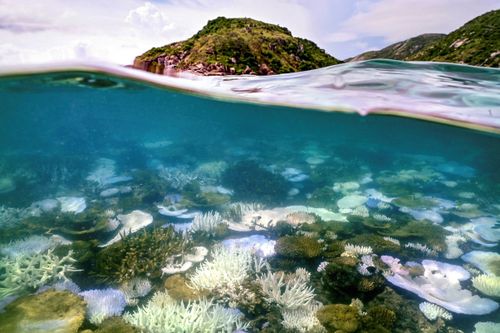Share this @internewscast.com
The chorus of global alarm is growing ever louder, underscoring the urgent need for action. Yet, amidst the reasons to worry, there’s also a compelling case for hope. Let’s explore both sides.
Australia’s Great Barrier Reef, a crown jewel of natural wonders, is facing an “existential threat” from climate change. This and other reefs worldwide have surged past critical climate thresholds, with projections suggesting a potentially catastrophic milestone within the next decade.
Dire terms such as “worst in 400 years,” “near-annual bleaching,” and “reef to rubble” populate a recent report compiled by numerous experts. This document warns of a new reality as the planet approaches its first climate tipping point.

Interestingly, while climate shifts may enhance food production in some regions, the accompanying unpredictability makes strategic long-term planning challenging.
Amidst these challenges, there are glimmers of optimism. The report highlights a “radical global acceleration” in the adoption of solar power, electric vehicles, batteries, and heat pumps. As these cleaner technologies become more affordable and efficient, the return to polluting alternatives seems unlikely.
Next month, global leaders will convene in Brazil for COP30, a pivotal installment of the United Nations climate conference. This gathering holds particular significance as nations are expected to escalate their commitments to reducing emissions.
“This grim situation must be a wake-up call that unless we act decisively now, we will also lose the Amazon rainforest, the ice sheets and vital ocean currents,” Barrett said.
“In that scenario, we would be looking at a truly catastrophic outcome for all humanity.”
Prime Minister Anthony Albanese announced last month that the nation would aim to reduce total carbon emissions by 62 per cent to 70 per cent, compared to 2005 levels.










